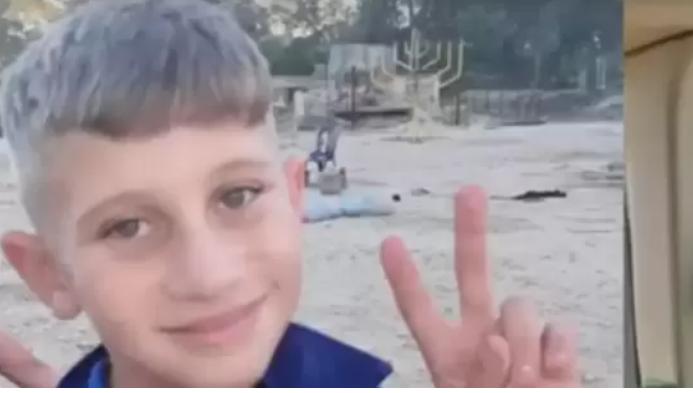In a shocking revelation, family members of recently released child hostages disclosed that their loved ones were subjected to cruel treatment by Hamas militants during the recent ceasefire deal with Israel. The victims, including 12-year-old Yagil and 16-year-old Or, were reportedly "marked" by their captors using burns from searing-hot motorcycle exhaust pipes.

According to Yaniv Yaakov, the uncle of the two boys, each child taken by Hamas was placed on a motorbike, and their legs were deliberately pressed against the scorching exhaust pipes. This brutal act aimed to leave lasting burns, serving as a grim marker to track the children in case of attempted escape.
"They were treated so bad, but at least they are with us," Yaakov expressed, highlighting the relief that the released children are now safe with their families.
"They took every child on a motorbike and put his leg on the exhaust of that motorbike, so they have a burn so they will be marked if they run, if they escape, so they can find them," Yaakov cited to Times of Israel.
He said his nephews, 12-year-old Yagil and 16-year-old Or, were also drugged and moved around constantly by the terrorists.
The accounts of Yagil and Or are just a glimpse into the horrifying experiences shared by the over 200 hostages taken by Hamas during their October 7 attack on Israel. Approximately 40 of these hostages are believed to be children, with at least 32 already released.
Tragically, the youngest victim, 10-month-old Kfir Bibas, lost his life in Hamas captivity along with his mother and 4-year-old brother. Despite Hamas attributing their deaths to Israeli shelling, the circumstances remain contentious.
Eitan Yahalomi, a 12-year-old, faced brutal treatment upon his capture, enduring beatings by Gazan citizens and being forced to witness graphic footage of massacres in Israel. The hostages, including 9-year-old Emily Hand, often lived in fear, threatened into silence with weapons.
Many children reported being kept underground in Hamas' intricate tunnel system, surviving on meager rations of rice and pita bread throughout their captivity.
The ceasefire deal, initiated on November 24, led to the release of hostages in exchange for a truce and the freedom of prisoners. Hamas had the option to extend the ceasefire for every 10 additional hostages released. Over 100 hostages have been released so far, with the truce set to end unless a new agreement is reached by 7 a.m. local time on Friday. The international community continues to closely monitor the situation as the victims attempt to recover from their harrowing ordeals.








